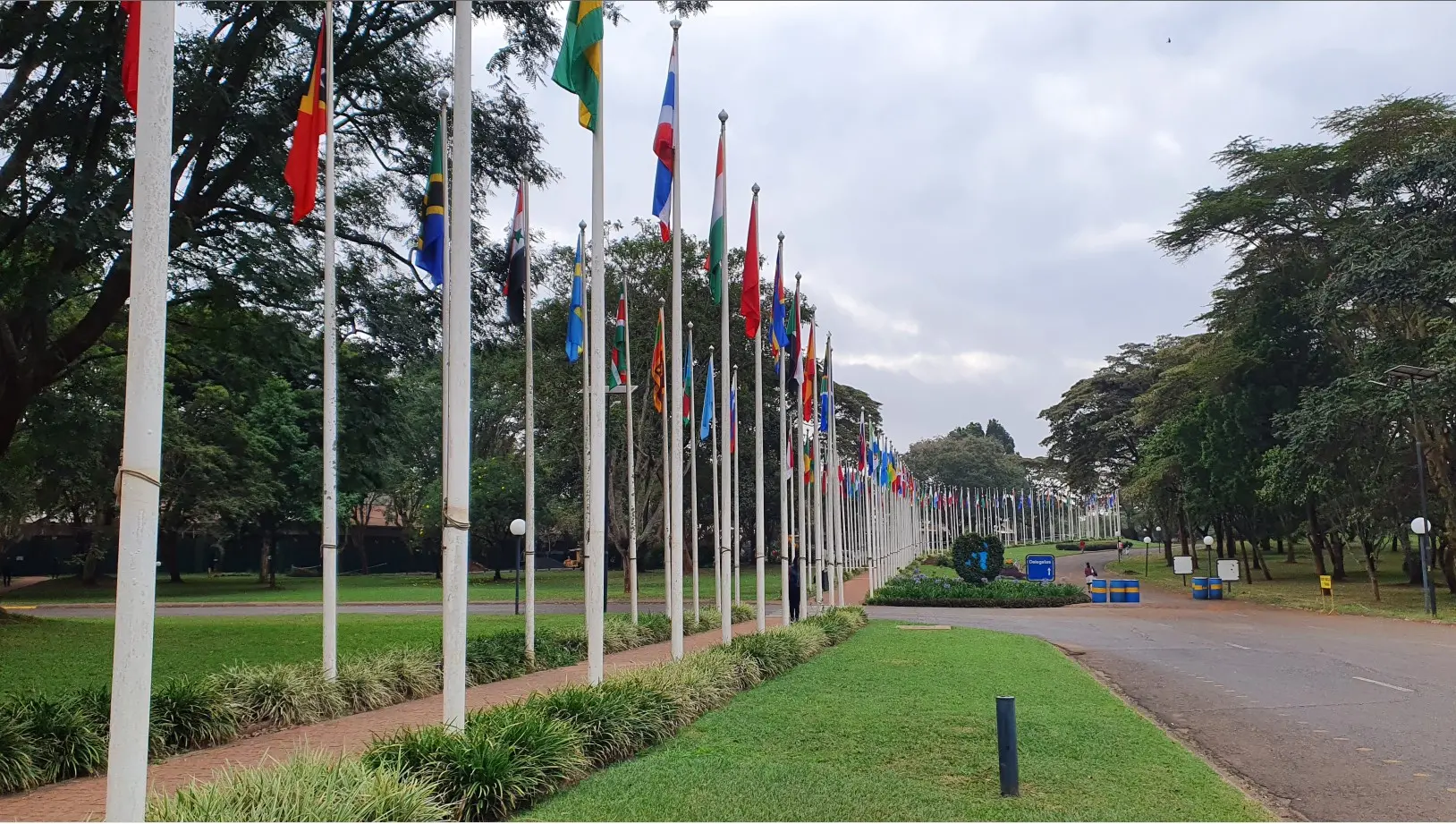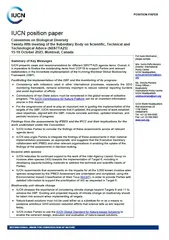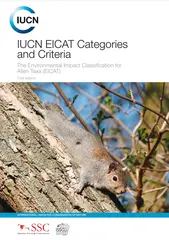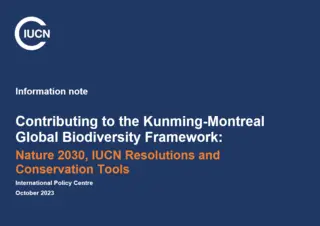IUCN side-events
Sunday 15.10 @ 13:15 | CR-11 - JUSCANZ
Enhancing international cooperation towards minimizing the negative impacts caused by invasive alien species
The side event aims to introduce recent global developments around IAS issues including the adoption of Target 6 of the GBF and the finalization of the IPBES assessment report on IAS. The speakers will also share their experiences at national level toward the achievement of the global target and will further discuss necessary actions to enhance international cooperation. More
Hosts: MOEJ | DEFRA | IUCN.
* * *
Monday 16.10 @ 13:15 | CR-11 - JUSCANZ
Monitoring equity and governance in area-based conservationThis side event explores a range of viable options to improve monitoring of PCA equity and governance, including the fundamental issue of the power relationship between Indigenous Peoples and Local Communities and other key actors, and how this might be covered in the Target 3 headline indicator using the concept of governance type. In addition to monitoring for Target 3, the event will also look at monitoring elements of Targets 22 and 23 that are particularly relevant to the governance and equity of PCAs, notably participation in decision making, access to information and access to justice. More
Hosts: IIED | FPP | IUCN WCPA EGG | CBD Women Caucus | UNEP-WCMC
* * *
Monday 16.10 @ 18:15 | CR-9 - Africa
Advancing the sustainable wildlife management for people, nature and positive livelihood outcomes: Perspectives of the Collaborative Partnership on Sustainable Wildlife Management
Through this SBSTTA-25 side event, Collaborative Partnership on Sustainable Wildlife Management (CPW) aspires to play an instrumental role in realizing the objectives set forth by the CBD COP15/23 decision on sustainable wildlife management. The discussions during this event will be enriched by the valuable insights and conclusions drawn from the CPW Consultative Workshop on Sustainable Wildlife Management Beyond 2020, the findings from the CBD's survey on sustainable wildlife management, the IPBES Assessment on Sustainable Use of Wild Species, and CPW's Third Wildlife Forum. More
Hosts: FAO | CBD | IUCN | TRAFFIC | IIED | UNEP | CIFOR | CITES
* * *
Monday 16.10 @ 18:15 | CR-11 - JUSCANZ
A new IUCN site assessment tool for identifying OECMs
As parties working to develop NBSAPs and implement the KMFBF, there is considerable interest in understand and identifying OECMs. This event will launch the new IUCN-WCPA Site-level tool for Identifying OECMs and provide a platform for a diverse group of speakers to present the latest advances in identifying and reporting OECMs worldwide. More
Hosts: IUCN | CBD.
* * *
Tuesday 17.10 @ 13:15 | CR-11 - JUSCANZ
Sustainable Wildlife Management and Gender
Gender inequalities and differences play an important role in the use, management and conservation of wildlife at the local level, as was noted in the Workshop Proceedings Sustainable Wildlife Management Beyond 2020. However, these issues are often overlooked or hardly addressed in wildlife management strategies, resulting in a limited effectiveness of the adopted strategies and exacerbating pre-existing gender inequalities. Therefore, this event will be an opportunity to emphasize gender-responsive sustainable wildlife management actions. Experiences at the local and regional level will be shared by experts, women leaders, organizers and advocates from different organizations and backgrounds to provide key ideas and experiences and possible actions on the gender perspective. More
Hosts: IUCN | W4B
* * *
Wednesday 18.10 @ 13:15 | CR-1 - Asia and the Pacific/ CGCR1 /Overflow
How to Gender-Responsively Monitor the Implementation of the KM Global Biodiversity Framework?
The main objective of the session is to identify concrete entry points for integrating gender considerations into all indicators related to the 23 targets of the KMGBF. Bringing together diverse perspectives from the CBD Secretariat, the UN system, governments and women's organisations, this webinar will explore the gender-related aspects of the KMGBF monitoring framework. Through insightful discussions and collaborative efforts, we aim to equip participants with the tools and insights necessary to advance gender equality in biodiversity monitoring and contribute to the successful implementation of the KMGBF. More
Hosts: CBD Women Caucus | FARN | FPP | GFC | ICCA Consortium | IIED | ILCN | IUCN | IWBN | SwedBio | UNEP-WCMC | W4B | WRI | WWF | Tebtebba
* * *
Wednesday 18.10 @ 18:15 | CR-11 - JUSCANZ
How the Global Species Action Plan (GSAP) supports the implementation, monitoring and reporting of the Kunming-Montreal Global Biodiversity Framework and CBD Programmes of Work?The Global Species Action Plan (GSAP) has been developed to support implementation of the Kunming-Montreal Global Biodiversity Framework (GBF) by setting out the key strategic interventions and actions required to achieve successful outcomes for the conservation and sustainable use of species in the GBF Mission, Goals, and Targets. The event will launch the GSAP document and present to CBD Parties and all stakeholders how to use the GSAP to implement, monitor and report on the GBF for the species related targets. More
Hosts: IUCN | KR | Birdlife | WWF.




